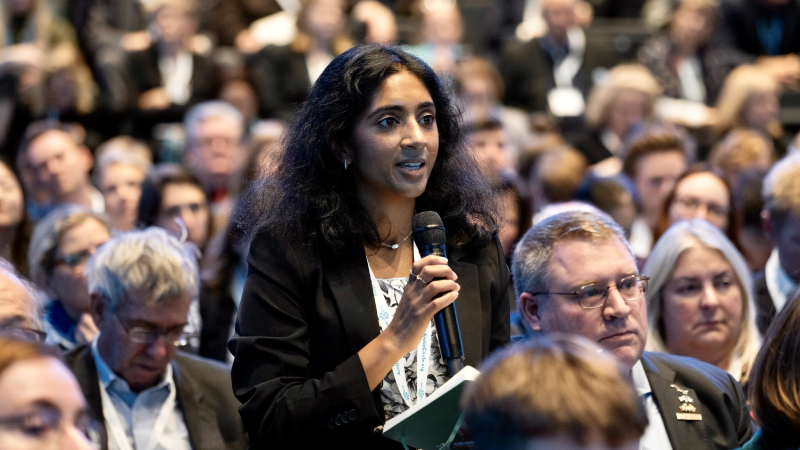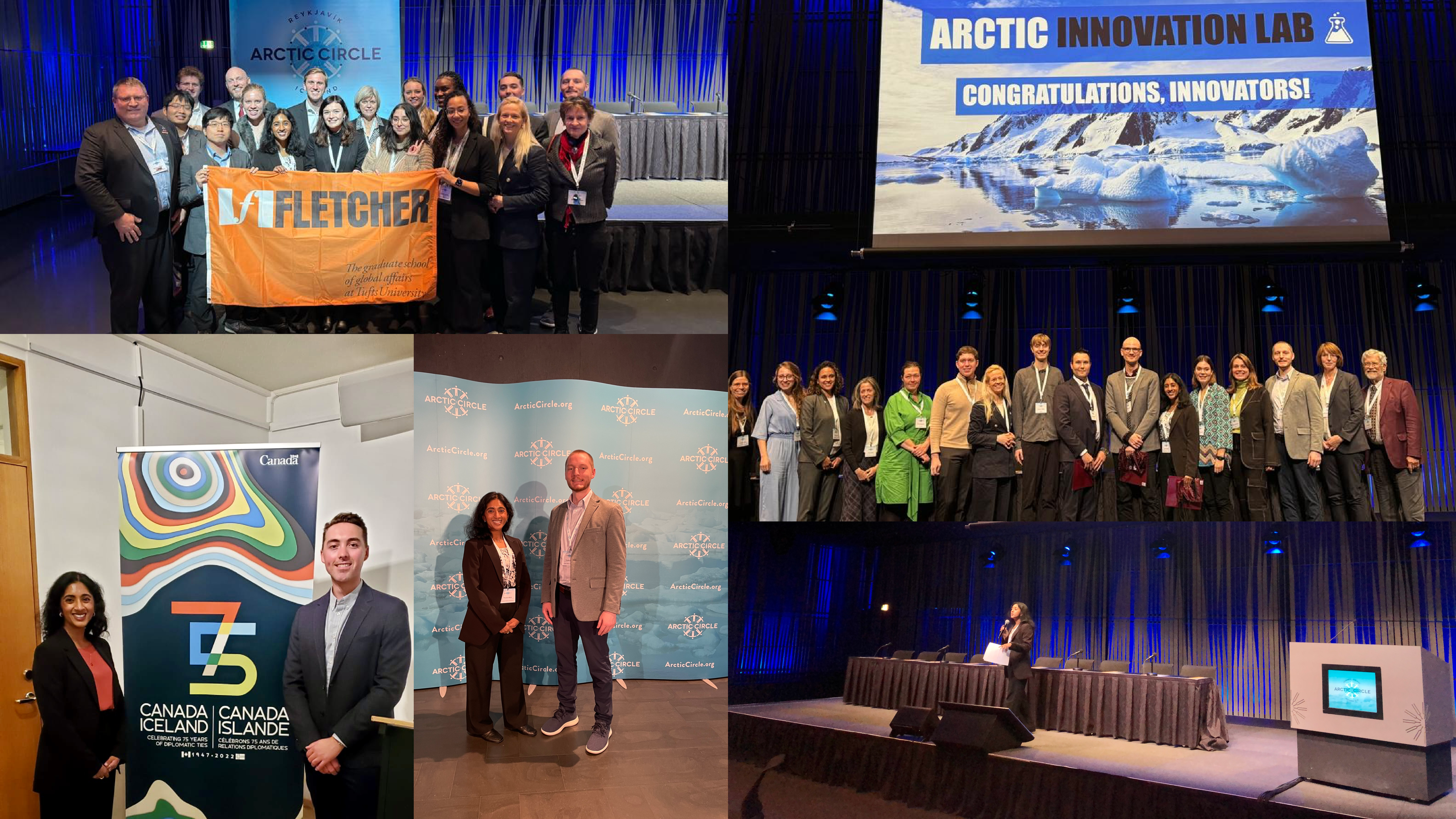
My Journey to Arctic Advocacy: Insights from the Arctic Circle Assembly
By Piyusha Mittal, MALD 2024 Candidate, The Fletcher School
In October 2023, I found myself on a stage at Harpa, Reykjavik’s majestic concert hall, beseeching the audience of the Arctic Circle Assembly to recognize that international governance leaders had a unique opportunity to form a coalition for freedom of navigation in the Arctic. As a participant in the Arctic Innovation Lab at the annual conference for Arctic cooperation in Iceland, I had a chance to give a short pitch about my idea to improve any facet of the Arctic. Though the path to Harpa was long and winding, I felt in my element on that stage, entreating my peers and senior officials to protect the sacred value of maritime cooperation. Ultimately, presenting at the Arctic Circle Assembly made me a more confident scholar and made me realize that I do have a valuable voice in the security studies realm and that I should not hesitate to broach tough topics with our leaders.
My Journey from Fletcher to Harpa
In Spring 2021, Fletcher’s maritime and strategy courses reignited my long-standing curiosity in Arctic studies, and I decided to tackle the geopolitical intricacies of the Northern Sea Route (NSR). This emerging Arctic sea lane along Russia’s coastline promises to connect Western Europe with East Asia, but Russia and the United States disagree on the legitimacy of Russia’s claimed control and sovereignty over the NSR. Canada supports Russia’s claim due to its own similar claims over the Northwest Passage along the Canadian coastline, but China—partnering with Russia to develop the NSR—rejects Russia’s claims of sovereignty.
The bizarre alignment of actors in the problem set absolutely fascinated me: how many international legal principles find the United States and the PRC in agreement, the United States and Canada in opposition, and the PRC and Russia divided? The more I researched solutions, the more tangled the problem became. Yet, I was determined to find strategies that would at least inch the United States closer to achieving its objective of freedom of navigation in the NSR. I spent the semester going back to the drawing board over and over, testing various theories that I refined right up until my presentation at the Arctic Circle Assembly.
My speech emphasized the critical need to safeguard freedom of navigation in the Arctic against Russia’s control over the Northern Sea Route. My proposal suggested establishing an Arctic Council-led coalition comprising both Arctic and non-Arctic states. I highlighted three strategic advantages in the current security landscape: first, the rare alignment of the United States and China on Arctic freedom of navigation; second, the growing rift between Russia and the rest of the world; and third, the early stages of partnerships between Russia and Asian states (particular Japan and South Korea) providing room to condition collaboration on respecting liberal values in the Arctic. What would it be like, I asked the audience, if we didn’t have freedom of navigation in the Arctic? Were we willing to seize the geopolitical moment to protect our maritime values?

How the Arctic Circle Assembly Made Me an Empowered Scholar
To my surprise and honor, I emerged as one of three winners of the Arctic Innovation Lab competition, gaining recognition from both judges and the audience for my proposal. Standing on stage with Arctic experts, academics, and leaders, I felt a deep-seated sense of affirmation. Despite my dedication to maritime and Arctic studies, my interactions with scholars and practitioners often leave me feeling overlooked and undervalued as a legitimate voice in security studies. This treatment highlights the systemic barriers that many women and students of color face in the field. Being recognized as an innovative, knowledgeable student of the Arctic in this esteemed forum served as a poignant affirmation of my capabilities. I emerged from the competition feeling resolute in the contributions I can make to maritime and security studies.
I spent the rest of the conference approaching senior leaders from around the world to ask tough questions they had dodged in plenary sessions and panels. I pursued leaders such as U.S. Senator Lisa Murkowski and the Arctic Council’s Chair of the Senior Arctic Officials Morten Høglund to ask how they would consider expanding Indigenous peoples’ role in Arctic governance. When I saw an admiral from the U.S. Coast Guard, I jumped at the chance to ask him about U.S. preparedness for Arctic cooperation and competition. And after each panel I attended, I stayed late to ask the speakers more in-depth questions about their subjects. While I was initially hesitant, I found that respect transcended status, fostering meaningful conversations and encouraging leaders to engage with enthusiasm.
In reflecting on my experience at the Arctic Circle Assembly, I have emerged affirmed, confident, and determined. The recognition of my proposal advocating for Arctic freedom of navigation reaffirmed my belief in the value of my voice within the security studies domain. Beyond the accolades, the conference provided a platform for personal growth. Overall, the Arctic Circle Assembly served as a launchpad for my passion for crafting solutions that uphold the Arctic’s unique spirit of cooperation.
I am deeply grateful to the Fletcher Russia and Eurasia Program for generously supporting me—both academically and financially—in my journey to the Arctic Circle Assembly.
